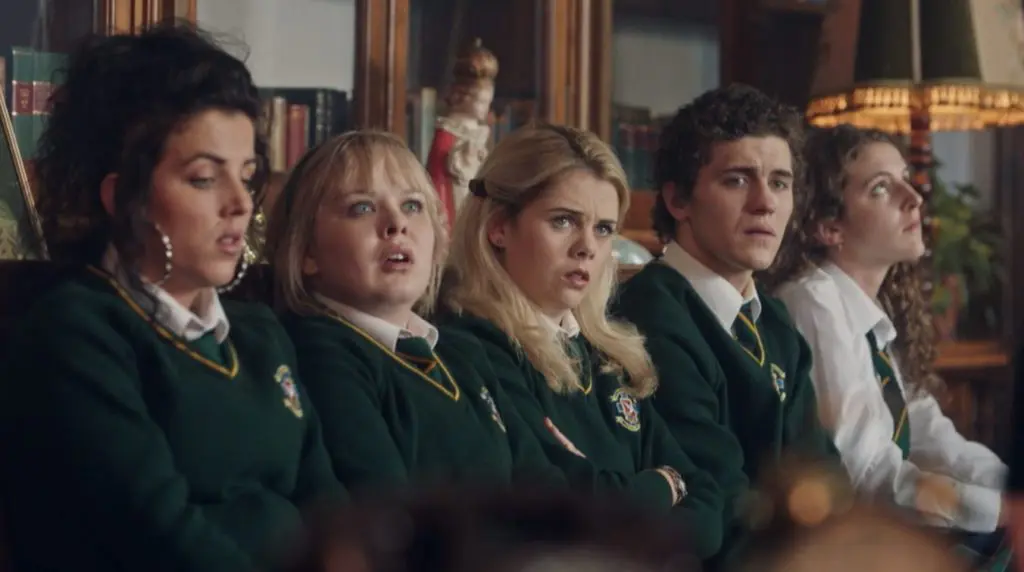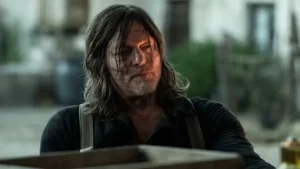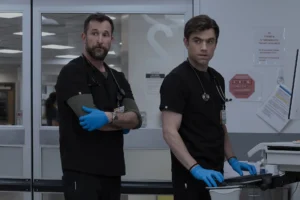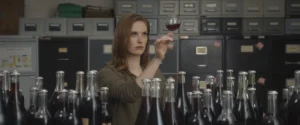Summary
The second season of Derry Girls continues to follow the antics of Erin, Orla, Clare, Michelle and her cousin James as they navigate the troubles of life and love and family in Derry, Northern Ireland.
Lisa McGee’s series Derry Girls features four girls and a boy who attend the all-girls Our Lady Immaculate Catholic school in Derry, Northern Ireland during The Troubles in the 1990s. It’s a funny, lighthearted but heartfelt comedy about growing up and all the foibles that come with it.
On the surface, it’s absolutely your typical coming-of-age sitcom, with your standard cast of characters. Derry Girls features four girls and a guy, who’s always included as one of the Girls, much to his protestations. Saoirse-Monica Jackson plays Erin Quinn, the protagonist and de facto leader of the girls. While it’s largely an ensemble, we follow her family. Louisa Harland plays Orla McCool, Erin’s cousin, the Phoebe of the group. Nicola Coughlan plays Clare Devlin, the uptight good girl who’s struggling with her sexual identity. Jamie-Lee O’Donnell plays Michelle Mallon, the Joey (or even the Stifler, quite often) of the Girls. Finally, Dylan Llewellyn plays James Maguire, Michelle’s British cousin who’s always the butt of the girls’ jokes and maintains that he’s deeply masculine, all the while the girls constantly make sure he knows he’s no better than them. Alongside the girls are Erin’s family and a colorful cast of Derry characters.
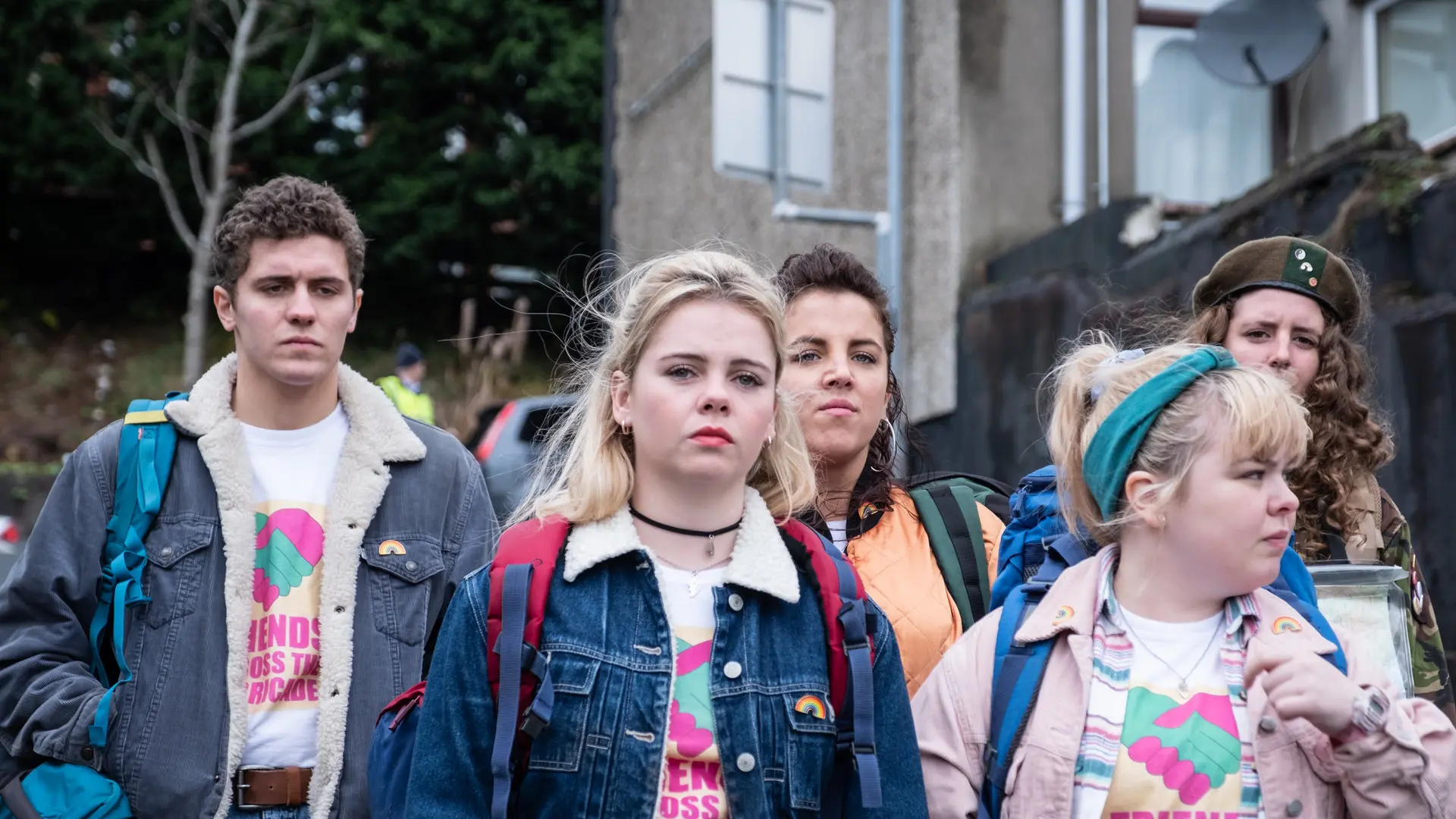
Normally I like to give a broad overview of a season of a show, but as we missed Season 1 when it came out last year (though I watched and loved it!), I’d like to highlight one major episode here: the first episode of Derry Girls Season 2. In this episode, the Girls (as a trip for their school) are going on a weekend across “enemy” lines to connect with some Protestants from the Londonderry Boys’ School to promote peace in a program called Friends Across the Barricade. The girls are really excited to really get to know how their Protestant neighbors live. They want to understand them and break down walls to promote tolerance and give peace a chance. Or to hook up with the boys. You know, whichever comes first.
This is the epitome of the series, and I love it.
It’s set against the backdrop of The Troubles between the British and Irish (specifically the time of the cease-fire and US President Bill Clinton’s visit to the UK), which adds emotional flavor and texture to this series. But that’s not all their lives revolve around. As an American, I don’t have personal experience with this—my knowledge largely comes from Patriot Games or my university history class for me—but it’s deeply applicable today in our border tensions, our growing xenophobia, our religious divide, and our political strife. And yet, we’re all humans. We’re all different on the surface, and those differences have long separated us due to (often) stupid fears. What unites us as humans is far greater than anything that divides us, and Derry Girls reminds us of this without hitting us over the head with saccharine platitudes.
It’s about growing up and losing innocence—though trust me these girls aren’t innocent, though they struggle with a naivety about the world. They trust easily, laugh more readily, and learn that the world is a difficult place to go it alone. They deal with liking boys (and girls), being ditched, and how to handle interlopers, deaths, dances, and even a drug-laced comedy of errors. Later in the season, Erin tries to go to the prom with a boy she likes (but won’t admit). She wants something overly fancy, but her mom won’t splurge, saying, “Well, if this boy really likes you, it won’t matter what you wear!” Erin retorts: “Oh, come off it!” There are some things of which a mother cannot convince her daughter–and that will remain timeless.
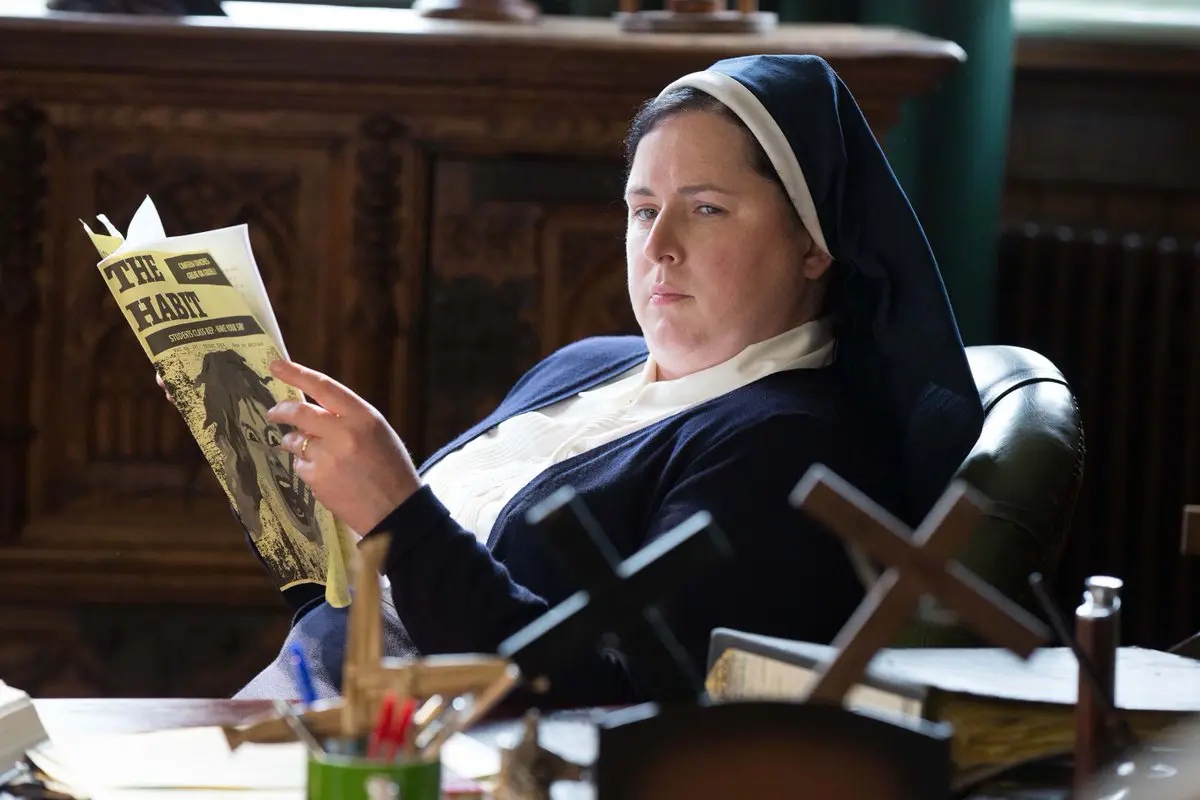
I also want to highlight Sister Michael (Siobhan McSweeney), the much-put-upon headmistress of Our Lady Immaculate. First, McGee has written Sister Michael with incredible nuance. In many series, she’d merely be Nurse Ratched, a one-dimensional, heartless, embodiment of all evil for the Girls. However, she’s seriously funny without being slapstick and seriously intimidating without being demonized. She takes out her aggression by practicing karate in her free time and reading The Habit magazine. She hates being headmistress but knows it’s exactly where she needs to be; she doesn’t put up with the crap that most TV principals do and intentionally lays down the law. On that same school trip, the Protestant headmistress opines: “I don’t know why everyone’s so eager for them to mix. I think we should keep them separate.” Sister Michael responds, “I think we should keep them in cages.” McSweeney plays her so dry and exasperated, but never hatefully – she’s excellent!
Derry Girls is so fun, which belies its depth—we explore the multifaceted nostalgia of the 90s through the music, pop culture (references abound, but of course my favorite is a Doctor Who party attended by one character), and fashion, but also through the humanity. Throwback music permeates Derry Girls; much like Stranger Things, it sets the tone (though they’re looser about their anachronistic needle drops). Copious amounts of The Cranberries (especially “Zombie”), Scarlet, The Proclaimers, and an excellent dance scene (set to The Hues Corporation’s “Rock the Boat”). The girls try to watch MTV with their parents but get heckled because of its racy content—reminding us all of life before YouTube or smartphones when we had to actually negotiate the television time or endure what the others in the house wanted to watch. What’s better, they’re constantly griping and thumping the TV repeatedly because of the fuzzy reception.
The acting often comes across as very sitcom-y: overexaggerated and cartoonish. That’s my primary criticism, but I’m taking it as an homage to the sitcoms of the 90s during which Derry Girls takes place. This doesn’t put me off one bit, though.
Lisa McGee’s Derry Girls is a light and fun coming of age tale filled with heart and humor. It’s well-crafted and lovingly created. If you’re looking for a different brand of nostalgia than Stranger Things, watch Derry Girls.

